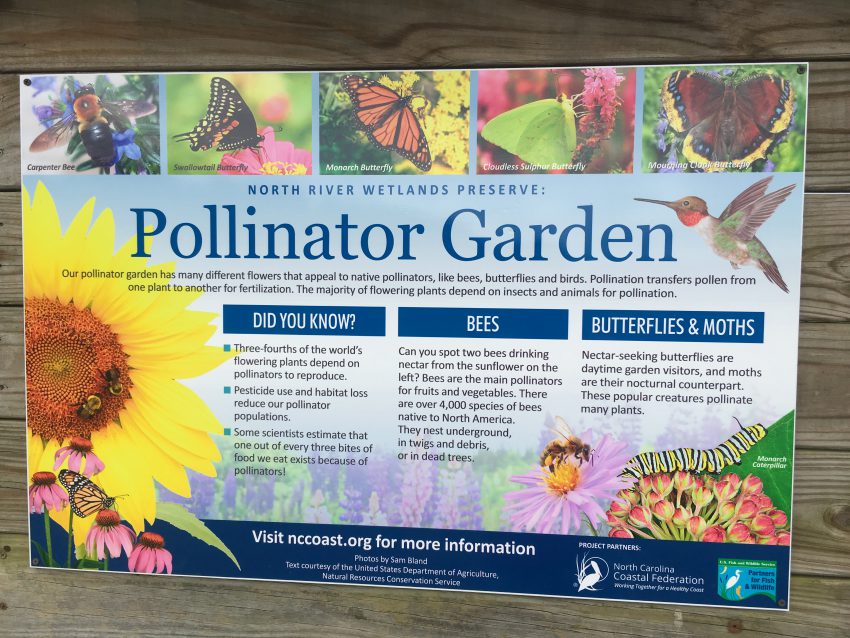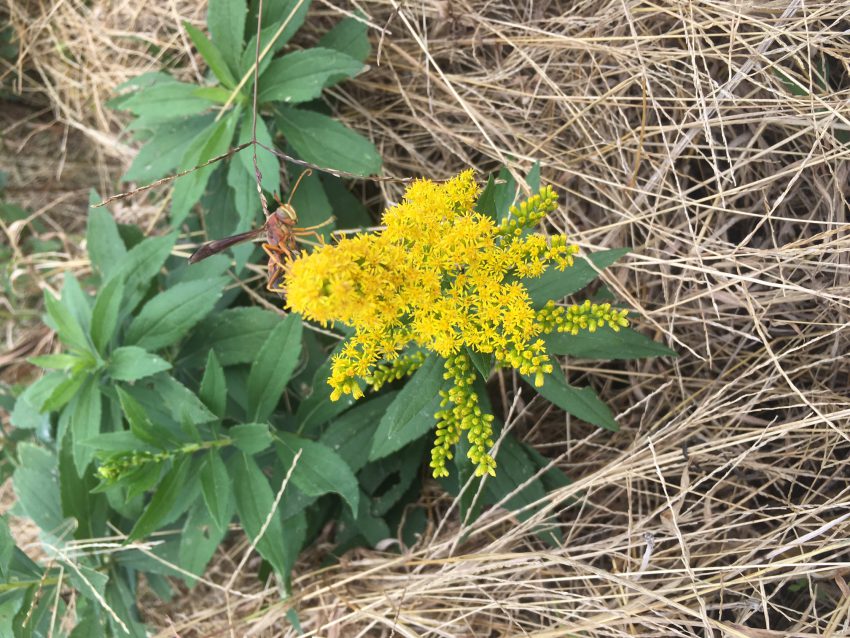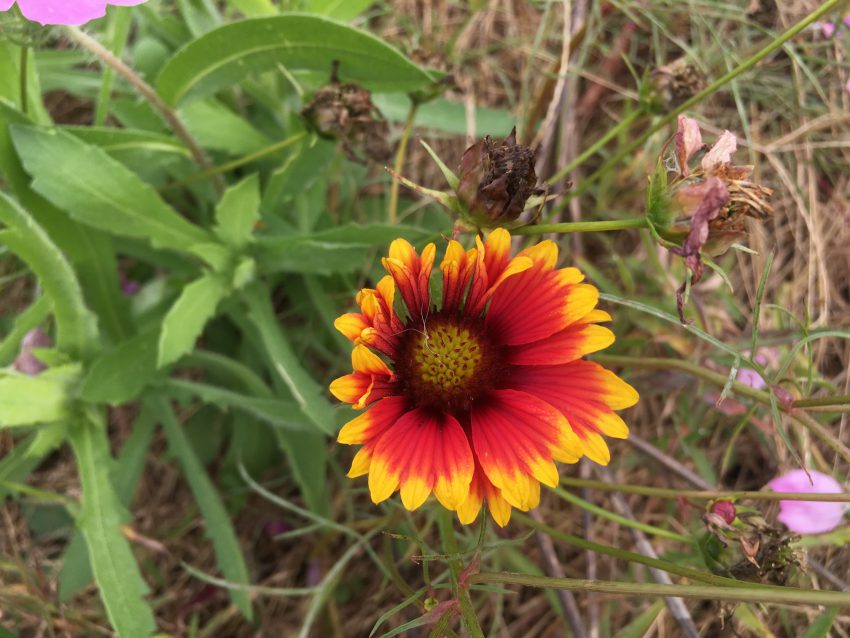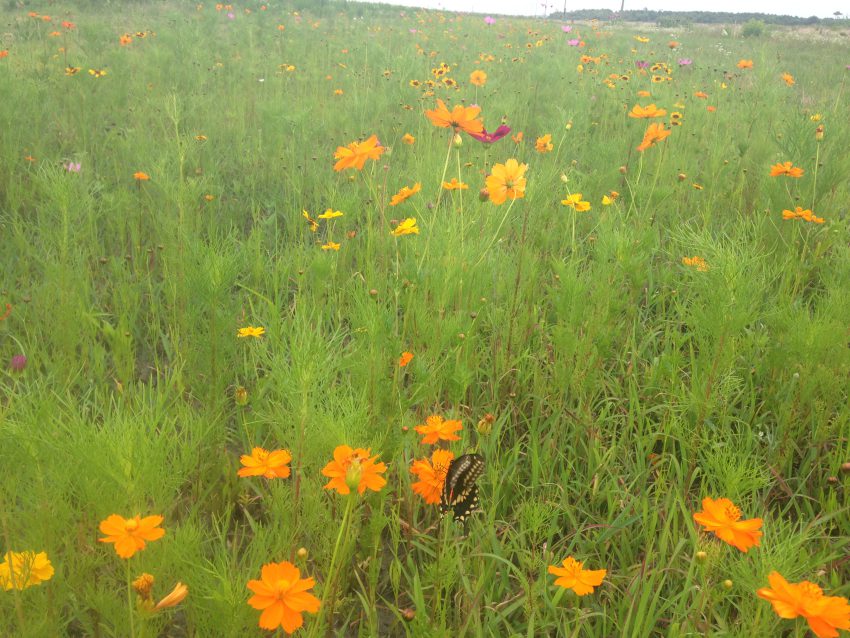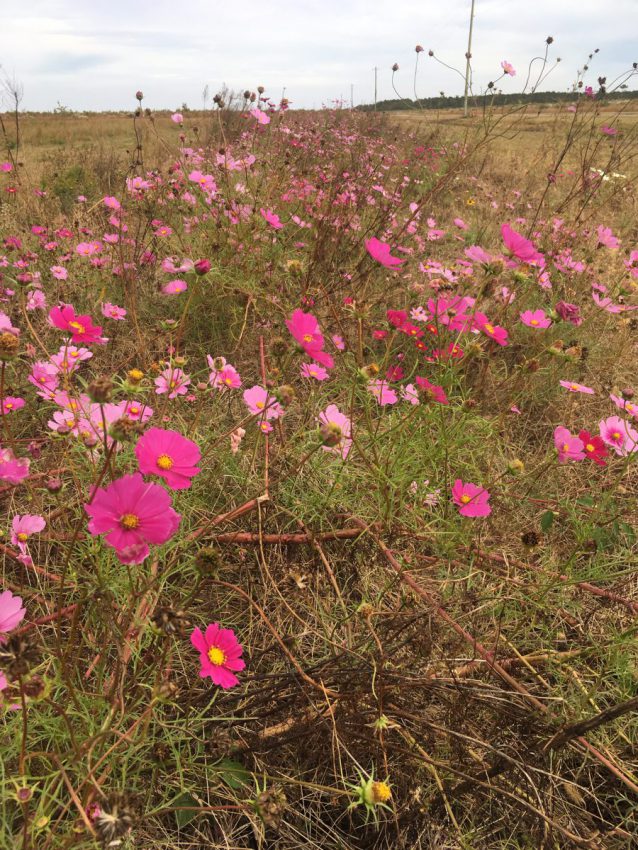Among 6,000 acres of former farmland and restored wetlands in Otway, there sits a quarter-acre piece of land with colorful flowers that attract native pollinators.
The pollinator garden at the North River Wetlands Preserve was planted by the North Carolina Coastal Federation in order to attract native pollinator species, many of which are on the decline due to pesticide use and habitat loss. The garden provides sources of pollen and nectar for species such as bees, monarch butterflies and birds. In return, flowering plants depend on pollinator species for reproduction, as pollination transfers pollen from plant to plant for fertilization.
According to the National Forest Service, “Without (pollinators), existing populations of plants would decline, even if soil, air, nutrients and other life-sustaining elements were available.”
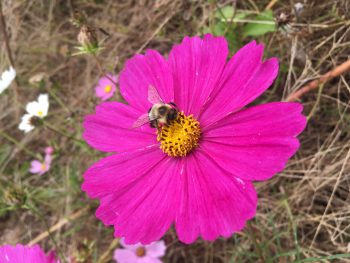
A bee drinks nectar from a cosmo. Photo: Rachel Bisesi
Funding for seeds, plants and educational supplies came from the Fish and Wildlife Service. The North Carolina Coastal Land Trust helped manage the project. The federation planted cosmos, coneflowers, black-eyed susans, sunflowers, gaillardia, butterflyweed and common milkweed. Milkweed is an important resource for monarch butterflies.
“We planted thousands of seeds at the garden, and these plants that grow in the garden will educate local students about the importance of creating habitat for pollinator species,” said Rachel Bisesi, coastal education coordinator for the federation.
Bisesi integrates pollinator lessons into the federation’s rain garden education program at seven schools in Carteret, Craven and Onslow counties. This lesson involves walking students through a school rain garden, also known as a living classroom, so students can look for pollinators.
The federation also teaches students about monarch butterflies, which you can learn more about from this Coastal Review Online article by Sam Bland, a coastal specialist for the federation.
In August 2016, the garden was added to the Rosalynn Carter Butterfly Trail, a network of butterfly gardens that was established to raise awareness of butterfly conservation.
To learn more about the pollinator garden at North River Wetlands Preserve, please contact Rachel Bisesi at 252-393-8185 or rachelb@nccoast.org.
Check out more photos from the garden:
- The sign at the garden
- A wasp pollinating a goldenrod
- Gaillardia, commonly known as a blanket flower
- Butterflies in the pollinator garden
- The colorful garden will benefit both the flowers and the pollinators

